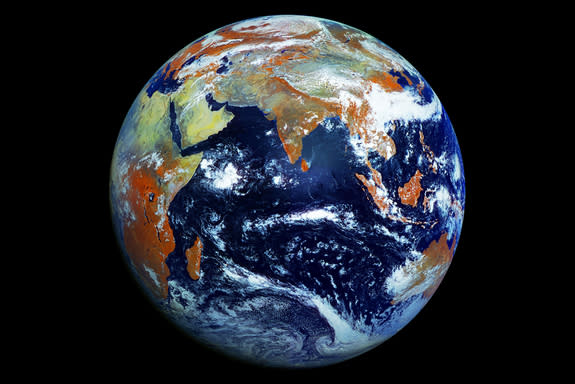IPCC Green-Lights Kyoto Protocol, Wetlands Reports

Countries tallying their total greenhouse gas emissions can now get a better estimate thanks to two new reports adopted this week by the Intergovernmental Panel on Climate Change at a meeting in Batumi, Georgia.
One report improves the total greenhouse gas inventory for countries participating in the Kyoto Protocol, the international treaty to limit greenhouse gas emissions. The other report is a more accurate assessment of gases emitted and absorbed by wetlands.
The reports will help countries improve their greenhouse gas emissions inventories, Jean-Pascal van Ypersele, vice chair of the IPCC, said today (Oct. 18) at a news conference announcing the final reports.
"To mitigate climate change means to know well where the emissions of greenhouse gases come from and also how natural systems absorb some of them," Van Ypersele said.
Under the Kyoto Protocol, developed countries report their greenhouse emissions and removals (such as carbon trapped by trees). The IPCC's new methodology report updates the methods for estimating man-made greenhouse gas emissions, and removal by sinks resulting from land use activities, such as planting new forests.
The new wetlands report fills in a substantive knowledge gap, Thelma Krug, co-chair of the IPCC's Task Force on National Greenhouse Gas Inventories, said during the news conference.
"Wetlands draining and rewetting is a new elective activity [for reporting] under the Kyoto Protocol," Krug said. "The IPCC report provides guidance on how to meet those requirements in a more complete and more accurate way."
Both methodology reports went through the same multiyear review process as the IPCC's better-known climate change reports. Scientific experts analyzed the early drafts, and then government representatives provided comments, before both groups came together in Batumi to hash out the final report.
The IPCC released a summary of its fifth annual climate change report in September, the first major assessment since 2007. Among the new findings is the strongest certainty to date, 95 percent, that people are responsible for global warming. The report warns that cuts are needed in greenhouse gas emissions to keep an increase in average global temperature below 3.6 degrees Fahrenheit (2 degrees Celsius) by 2100.
Email Becky Oskin or follow her @beckyoskin. Follow us @livescience, Facebook & Google+. Original article on LiveScience.
Copyright 2013 LiveScience, a TechMediaNetwork company. All rights reserved. This material may not be published, broadcast, rewritten or redistributed.


